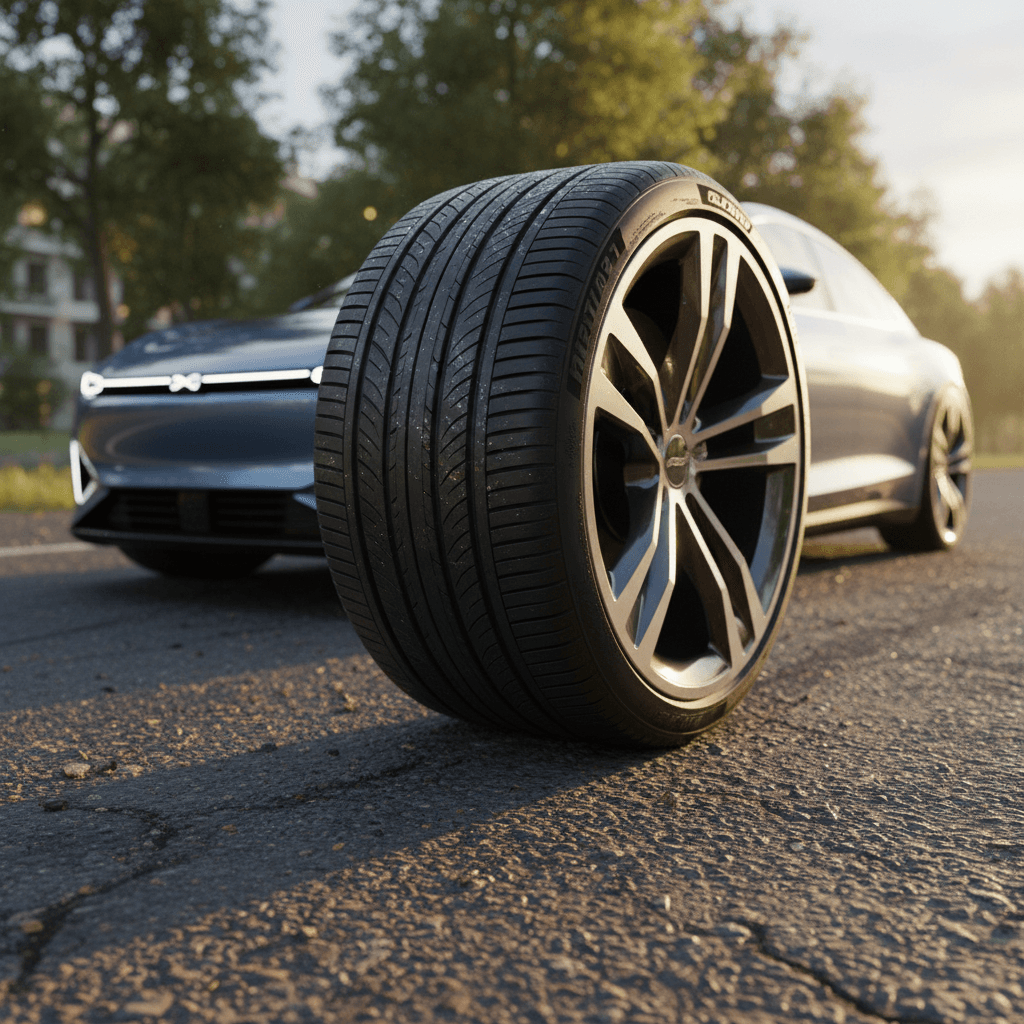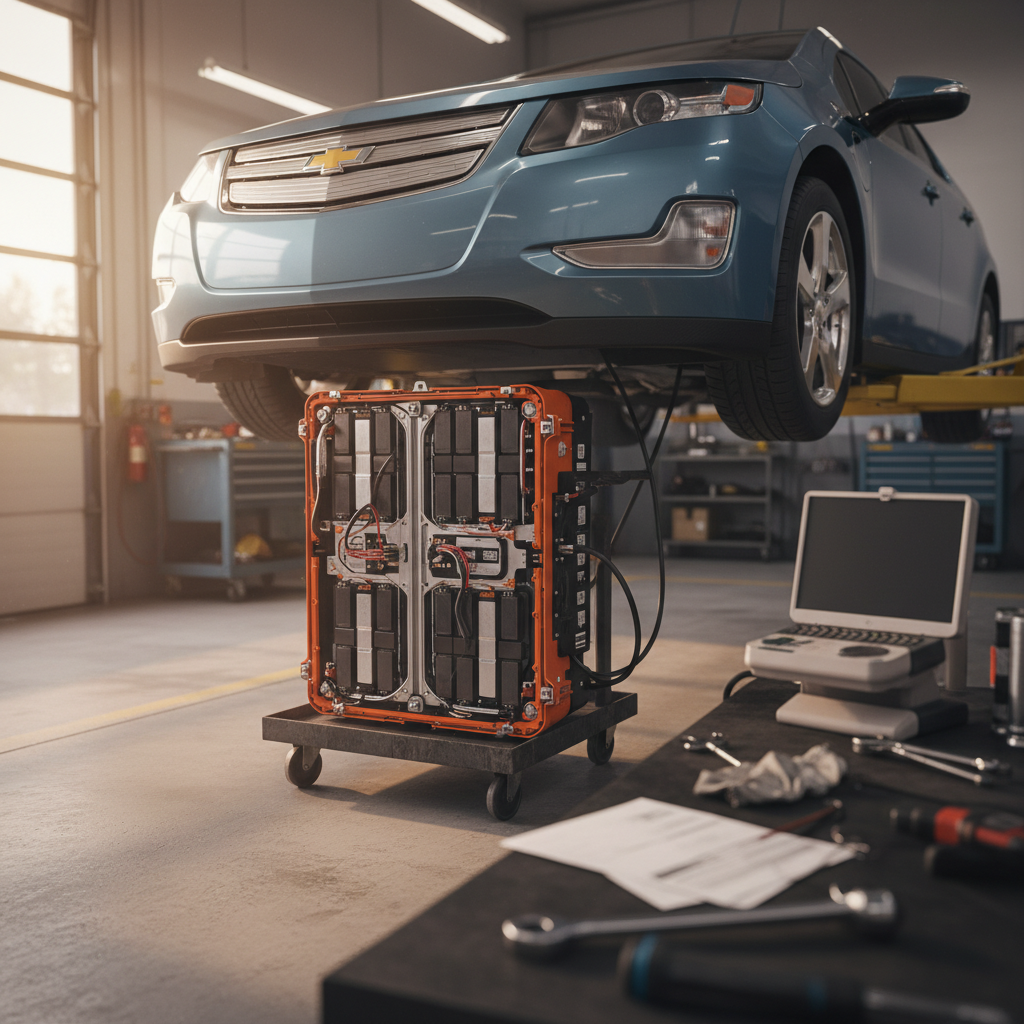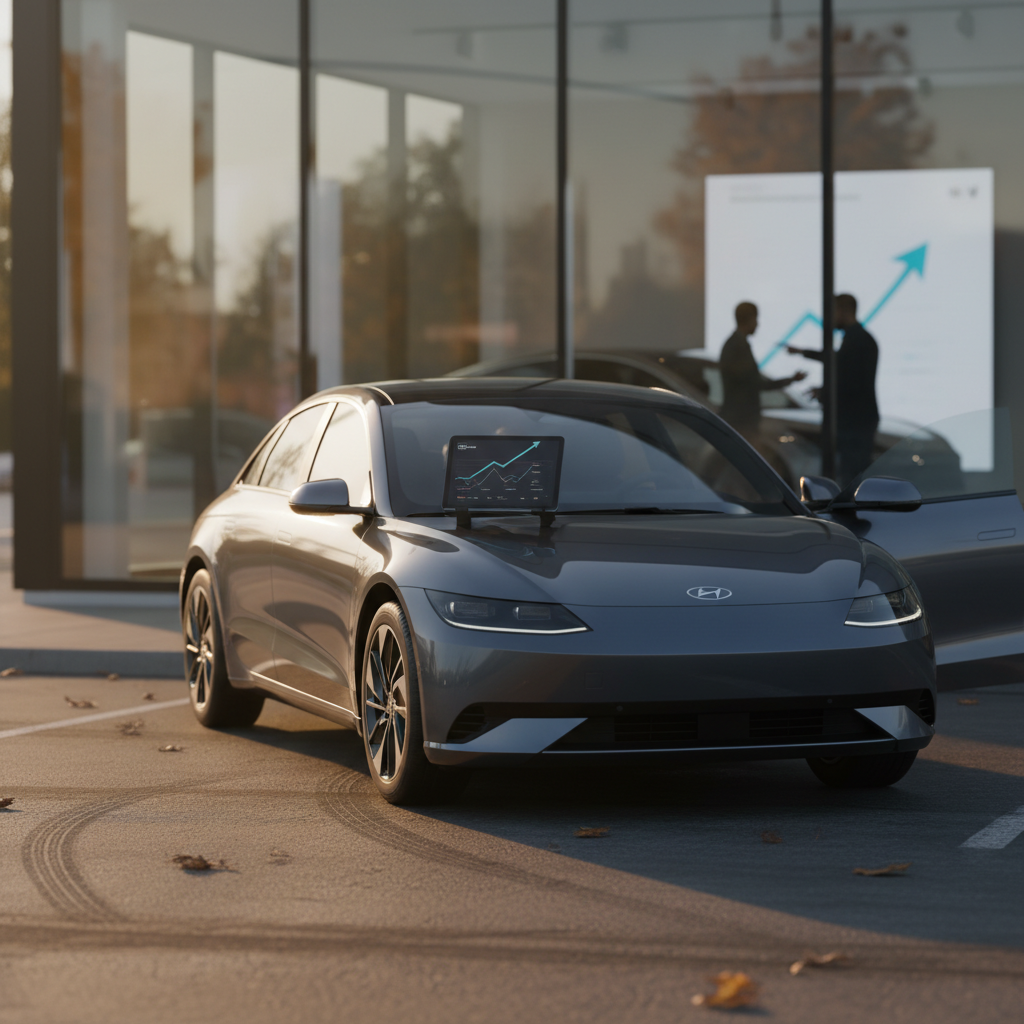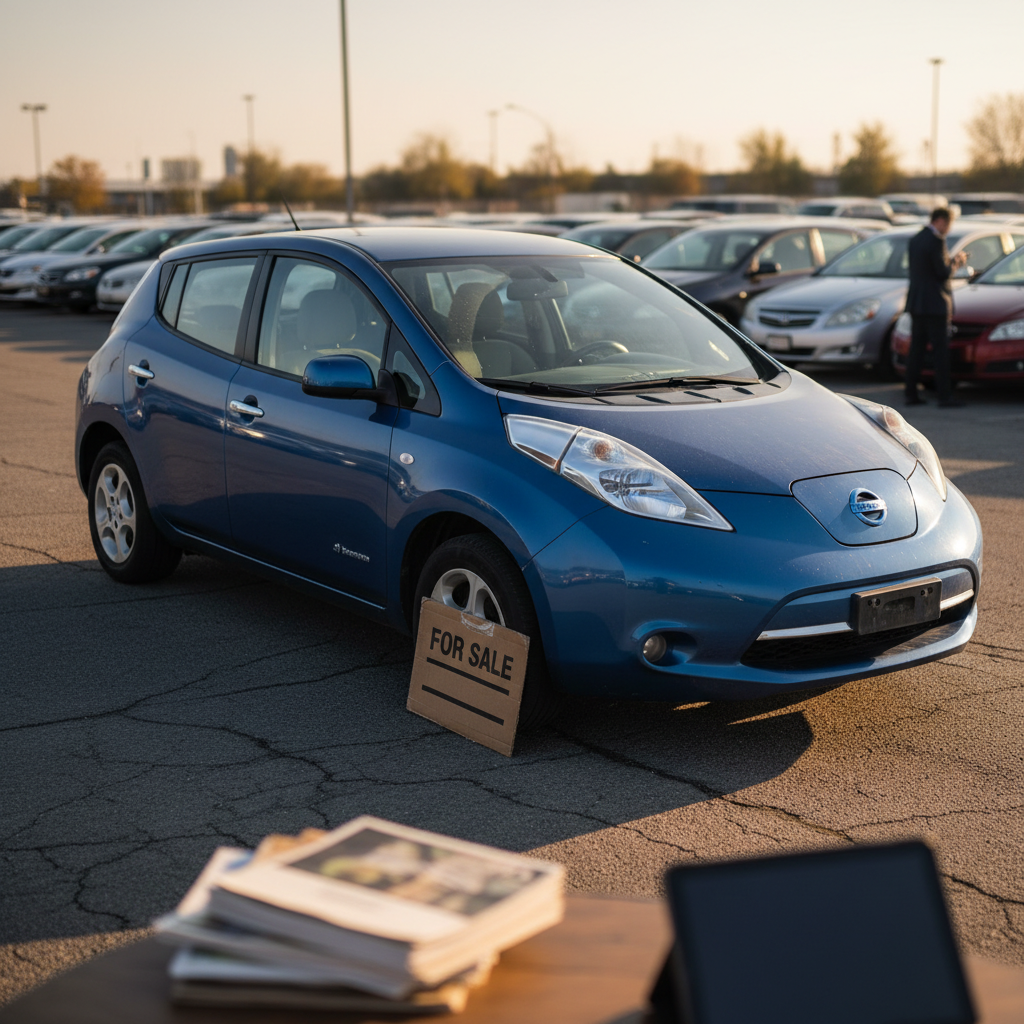If you’ve just moved into an electric vehicle, you quickly discover that the best EV tires aren’t always the same ones you’d pick for a gas car. EVs are heavier, quicker off the line, and nearly silent, so tires play an outsized role in range, safety, cabin noise, and long-term running costs.
EV Tires in One Sentence
Why EV tires are different from regular tires
Most of the time you can bolt on a conventional tire that matches your EV’s size and load index, and it will work. But it might not work well. Michelin and other major suppliers report that EV tires can wear up to about 20% faster than those on comparable gas cars because of higher weight and instant torque. On top of that, your battery range and the quiet, refined feel you bought the EV for are strongly influenced by tire choice.
- Heavier vehicles: The battery pack makes many EVs 10–30% heavier than their gas equivalents, so tires need higher load ratings and stronger construction.
- Instant torque: That satisfying snap off the line can scrub tread away quickly on soft or low-quality rubber.
- Low rolling resistance: EV-focused tires use special compounds and tread designs to reduce drag and extend range, sometimes by dozens of miles per charge.
- Noise control: Without an engine to mask sound, tire roar becomes the loudest thing in the cabin, so EV tires often add foam or tuned tread patterns to stay quiet.
Don’t Ignore Load Rating
Quick picks: best EV tires in 2025
What EV-focused tires can realistically deliver
Best EV tires for 2025 by category
These are well-regarded, widely available models to put on your short list. Always confirm size and load rating for your specific EV.
Best all-season daily driver
Bridgestone Turanza EV
- Built specifically for EVs with tuned sidewalls for extra weight.
- Excellent comfort and very low road noise, ideal for commuters.
- Strong wet grip; better for efficiency and comfort than canyon carving.
Best performance-focused summer tire
Hankook iON evo
- Repeated test winner in European EV tire tests from 2023–2025.
- Balances sharp handling with impressive rolling resistance.
- Great fit for sportier EVs like Model 3 Performance or Ioniq 5 N.
Best winter tire for EVs
Nokian Hakkapeliitta 10 EV
- EV-specific studded winter tire with outstanding ice and deep snow grip.
- Low rolling resistance for a true winter tire, helping preserve range.
- Best for drivers facing sustained sub-freezing temps and packed snow/ice.
How to Use These Picks
How tires affect EV range, noise, and safety
Range and efficiency
Rolling resistance is the friction between the tire and the road. EV-optimized tires use specialized compounds and construction to reduce it. In recent independent testing, the most efficient EV tire delivered roughly 60+ miles more range per charge than the least efficient competitor on the same crossover EV. That’s the difference between arriving relaxed or hunting for a charger.
The trade-off is that ultra-efficient tires can give up a bit of wet grip or ultimate cornering power. For most drivers, a well-balanced touring tire is the sweet spot.
Noise, ride, and safety
Because EV cabins are so quiet, even a 3–4 dB increase in tire noise is easy to hear. Many EV tires now use acoustic foam bonded inside the carcass plus computer-tuned tread blocks to smooth the sound signature.
Safety comes from grip and stability. Look for strong wet braking scores first, then snow performance if you drive in winter weather. A quiet tire that can’t stop you in the rain isn’t a good EV tire.
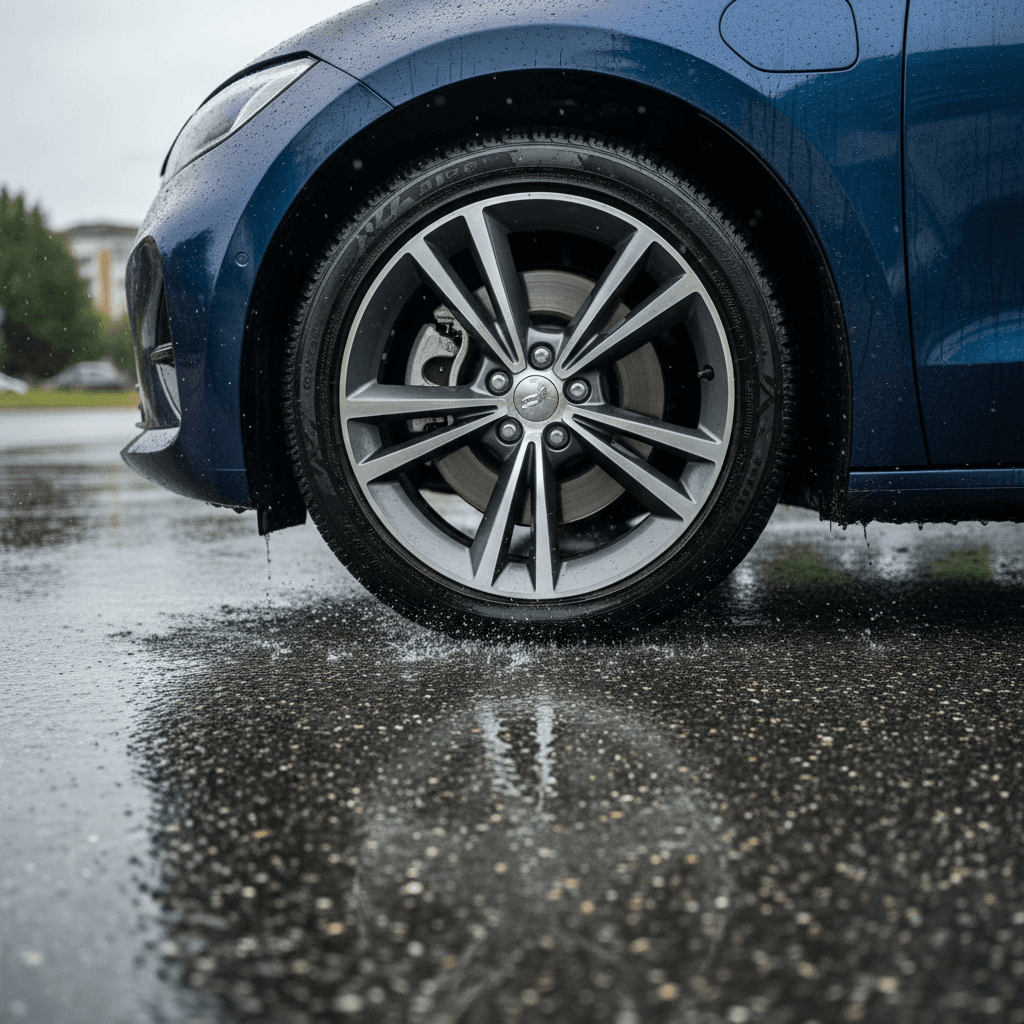
Best all-season EV tires for daily driving
If you live in a moderate climate or don’t frequently see deep snow, a good all-season EV tire is usually the best balance of range, comfort, and cost. Here are standouts you’ll see recommended again and again in 2025.
Recommended all-season EV tires (2025)
Representative options often praised for EV use. Prices and warranties are approximate and vary by size.
| Tire | Type | What it does best | Typical warranty | Best for |
|---|---|---|---|---|
| Bridgestone Turanza EV | Touring all-season, EV-specific | Superb quietness and comfort, composed wet grip | Up to ~70,000 miles (size-dependent) | Daily-driven sedans and crossovers (Model 3/Y, Ioniq 5, EV6) |
| Goodyear ElectricDrive 2 | All-season, EV-specific | Balanced efficiency, quiet ride, sustainable materials | Around 45,000 miles | Eco-conscious drivers who want year-round traction |
| Pirelli P Zero All Season Plus Elect | UHP all-season, EV-specific | Sharp steering with low noise and good wet traction | Up to 50,000 miles (non-staggered) | Sporty EVs that still drive in bad weather |
| Yokohama ADVAN Sport EV A/S | UHP all-season, EV-specific | Comfortable ride and precise handling with long treadlife | Up to 55,000 miles (front/rear split on staggered) | Drivers who want performance feel without a harsh ride |
Always verify load rating, speed rating, and size for your specific EV before buying.
A Solid Default Choice
Best EV summer and performance tires
Performance EVs put sports-car power through all four contact patches. On those cars, the best EV tires are often summer or ultra-high-performance (UHP) models that trade a bit of efficiency for grip and control.
Top performance-focused EV tire options
For spirited driving, track days, and high-power dual-motor EVs.
Hankook iON evo
An EV-specific summer UHP tire that’s been crowned test winner multiple years running in European evaluations, thanks to its mix of dry/wet grip, low rolling resistance, and reasonable wear.
Best for: Sporty compact EVs and crossovers used mainly in mild to warm climates.
Michelin Pilot Sport EV
Blends Michelin’s motorsport experience with EV tuning. Strong dry grip and confident wet braking with reasonable efficiency; some drivers report firmer ride than touring options.
Best for: Drivers who value steering precision and braking over maximum range.
Pirelli P Zero (Elect variants)
Many EV performance trims ship on P Zero Elect OE fitments. They offer excellent lateral grip and responsive turn-in at the expense of faster wear and more road feel.
Best for: High-performance EVs where you accept shorter tire life as part of the deal.
Summer Tires in Cold Weather
Best winter tires for EVs
If you deal with regular snow, ice, or slush, the best EV tires for safety are dedicated winter models. EV-specific winter tires are now common, with reinforcements for higher weight and compounds tuned for low rolling resistance in cold temperatures.
Winter EV tire picks for 2025
Choose based on how severe your winters really are.
Nokian Hakkapeliitta 10 EV (studded)
One of the benchmark EV winter tires, especially for ice and deep snow. Double-stud design, directional tread, and strong construction handle powerful, heavy EVs.
Best for: Harsh winter climates with frequent ice and packed snow.
Pirelli Winter Sottozero 3 Elect
EV-tuned version of a popular performance winter tire. Deep grooves and dense siping provide strong snow and slush traction with precise steering feel.
Best for: Performance-oriented EVs in cold climates that see more snow than ice.
Michelin X-Ice Snow / Pilot Alpin 5 SUV
Excellent all-around winter options often recommended for EVs, with flexible compounds that stay grippy at low temps and relatively quiet operation for the category.
Best for: Drivers wanting confidence on snow and ice without unbearable noise.
All-Season vs Dedicated Winter
EV tire buying checklist
Your step-by-step EV tire buying guide
1. Confirm OEM size and load index
Open your driver’s door and read the tire placard. Note the size (e.g., 235/45R18), load index, and speed rating. Any replacement should match or exceed those numbers.
2. Decide your primary goal
Rank what matters most: <strong>range, quiet, comfort, performance, or snow traction</strong>. No tire does it all; your priorities narrow the field quickly.
3. Match tire type to climate
Hot and dry most of the year? Summer or UHP all-season may make sense. Four true seasons? Lean toward all-season or a winter/summer swap if you see real snow.
4. Ask specifically about EV suitability
Look for language like “Elect,” “EV,” “iON,” or “ElectricDrive,” and ask your tire shop if the model has been tested or warrantied on EVs.
5. Compare real test data, not just marketing
Independent tests that include <strong>wet braking, noise, and rolling resistance</strong> tell you far more than treadwear numbers alone.
6. Get an alignment and rotation plan
Heavy EVs are unforgiving of poor alignment. Plan to align when you install the new tires and rotate them every 5,000–7,500 miles to maximize life.
How long EV tires last, and when to replace them
Traditional gas cars often see 35,000–50,000 miles from a decent set of tires. Many EV owners are surprised to find their first set fading earlier, especially on performance models with soft compounds or staggered fitments. Aggressive acceleration, heavy curb-weight, and infrequent rotations all contribute.
- Expectations: Many mainstream EVs on quality tires can still see 25,000–40,000 miles if you rotate on schedule and drive reasonably.
- Minimum tread depth: Most experts recommend replacing summer and all-season tires at 3/32"–4/32" of remaining tread, and winter tires even sooner (around 5/32").
- Age: Even if tread remains, a tire that’s 6–8 years old can harden and crack. Check the DOT date code on the sidewall.
- Uneven wear: If you see heavy wear on one edge or on the rear tires only, have the suspension checked and aligned before installing a new set.
Don’t Run Tires to the Cords
Tire tips when you’re buying a used EV
At Recharged, every vehicle gets a detailed inspection and a Recharged Score Report so you’re not guessing about battery health or basic maintenance. Tires are a big part of that story, because they tell you how the previous owner drove and how much money you’ll need to put in right away.
What tires can tell you about a used EV
Use this as a quick walk-around checklist, whether you’re shopping online or in person.
Read the wear pattern
Even, consistent wear suggests proper alignment and careful driving. Heavy rear wear on a powerful EV can be normal, but severe inside-edge wear or cupping points to neglected alignment or worn suspension parts.
Check brand, model, and age
A nearly new EV on off-brand budget tires may have been run on the cheap. A used EV on quality EV-rated tires tells you someone cared. Confirm DOT date codes so you’re not inheriting 6–7-year-old rubber.
How Recharged Helps
EV tires FAQ
Frequently asked questions about the best EV tires
Getting the best EV tires isn’t about chasing one magic model; it’s about matching the rubber to your car, your climate, and the way you really drive. Spend a little time here and you’ll gain back range, cut cabin noise, and, most importantly, give your EV the grip it needs when things go wrong. And if you’re shopping for a used EV, remember that Recharged combines verified battery health, fair pricing, and clear tire information in one place, so you can enjoy the drive, not worry about what’s under it.
